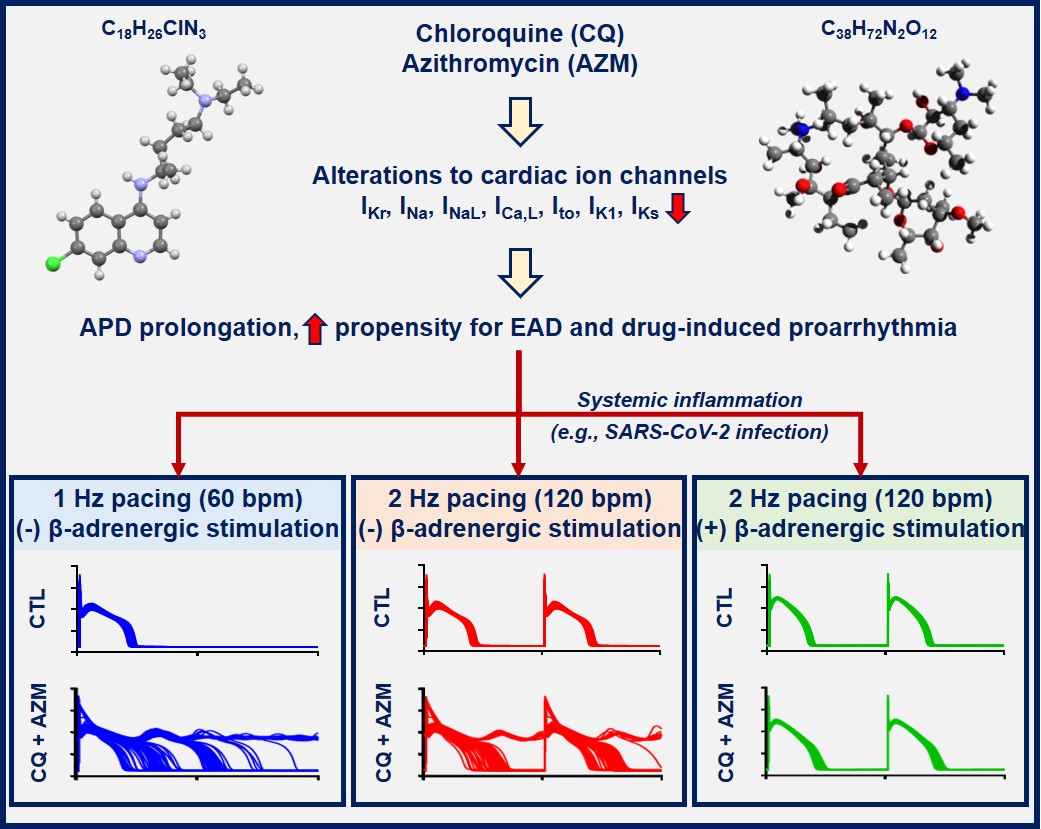Background: The antimalarial drug chloroquine and antimicrobial drug azithromycin have received significant attention during the current COVID-19 pandemic. Both drugs can alter cardiac electrophysiology and have been associated with drug-induced arrhythmias. Meanwhile, sympathetic activation is commonly observed during systemic inflammation and oxidative stress (e.g., in SARS-CoV-2 infection), and may influence the electrophysiological effects of chloroquine and azithromycin. Here, we investigated the effect of beta-adrenergic stimulation on proarrhythmic properties of chloroquine and azithromycin using a detailed in silico model of ventricular electrophysiology. Methods: Concentration-dependent chloroquine and azithromycin-induced alterations in ion-channel function were incorporated into the Heijman canine ventricular cardiomyocyte model. Single and combined drug effects on action-potential (AP) properties were analyzed using a population of 592 models accommodating inter-individual variability. Sympathetic stimulation was simulated by an increase in pacing rate and experimentally validated isoproterenol-induced changes in ion-channel function. Results: At 1 Hz pacing, therapeutic doses of chloroquine and azithromycin (5 and 20 µM, respectively) individually prolonged AP duration (APD) by 33% and 13%. Their combination produced synergistic APD prolongation (+161%) with incidence of proarrhythmic early afterdepolarizations in 53.5% of models. Increasing the pacing frequency to 2 Hz shortened APD and together with 1 µM isoproterenol corrected the drug-induced APD prolongation. No afterdepolarizations occurred following increased rate and simulated application of 0.1-1 µM isoproterenol. Conclusion: Sympathetic stimulation limits chloroquine- and azithromycin-induced proarrhythmia by reducing their APD-prolonging effect, suggesting the importance of heart rate and autonomic status monitoring in particular conditions (e.g., COVID-19).

